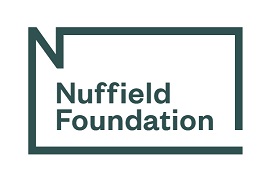Impact of school breakfast programmes
This project, funded by the Nuffield Foundation, will investigate the impact of free breakfast schemes on children’s well-being and academic outcomes in English primary schools.
Why this project is important
School breakfast schemes have been delivered in England via different initiatives and charities for at least 30 years. Since 2018 the National School Breakfast Programme has subsidised breakfast in schools with a high proportion of pupils from deprived neighbourhoods. The current government has announced its intention to expand breakfast provision to all pupils in primary school. However, it’s unclear which form of breakfast provision will be chosen and which is optimal.
What it will involve
Since there is no centralised database of school breakfast provision, the research team will utilise data from three major providers of breakfast provision in England: Magic Breakfast, the Greggs Foundation, and the National School Breakfast Programme. This will be linked to data from:
- the National Pupil Database (absences, punctuality, attainment, and child development);
- the National Child Measurement Programme (body weight); and
- Understanding Society (children’s social emotional behaviour, mental health, and parent’s financial situation and labour market participation).
To analyse the impact of breakfast programmes on key outcomes, analysis will exploit the roll-out of free school breakfast schemes across schools over time, comparing the outcomes of children within schools who were early and late adopters of free breakfast provision.
How it will make a difference
Findings from this work will be informative for key stakeholders, including organisations providing school breakfasts, policymakers, and campaign groups. It will provide evidence on the benefits of different forms of breakfast provision (e.g. grab n’ go versus a before-school club), in different types of schools and for different groups of children. It will therefore help determine optimal ways for breakfast provision to be implemented and indicate whether supplementary policies might be required to shift some of the targeted outcomes.
The research team will leverage the relationships and networks developed during their previous Nuffield-funded project on the Impact of Universal Free School Meals.
Team members
Professor Birgitta Rabe
Professor - ISER, University of Essex
Dr Angus Holford
Senior Research Fellow - ISER, University of Essex
Other research on breakfast provision in schools
Professor Louise Dye : University of Sheffield
- Associations Between Habitual School-Day Breakfast Consumption Frequency and Academic Performance in British Adolescents
- The effects of breakfast on behavior and academic performance in children and adolescents
- How Can We Encourage Primary School Children to Choose and Consume High-Fibre Breakfast Products?
- Ready-to-eat cereal and milk for breakfast compared with no breakfast has a positive acute effect on cognitive function and subjective state in 11–13-year-olds: a school-based, randomised, controlled, parallel groups trial
Professor Margaret Defeyter : University of Northumbria
- Universal free school breakfast: A qualitative process evaluation according to the perspectives of senior stakeholders.
- A qualitative evaluation of holiday breakfast club in the UK: Views of adult attendees, children and staff.
- Breakfast clubs: Starting the day in a positive way.
- More than just a meal: Breakfast club attendance and children’s social relationships.
- The advantages and disadvantages of breakfast clubs according to parents, children and school staff in the North East of England, UK.
- Universal free school breakfast: a qualitative model for breakfast behaviours.
- Breakfast and Beyond: The Dietary, Social and Practical Impacts of a Universal Free School Breakfast Scheme in the North West of England, UK.
- The effect of breakfast cereal consumption on adolescents’ cognitive performance and mood.
- Breakfast clubs availability for British school children and the nutritional, social and academic benefits.

Start date
01 Dec 2024
End date
28 Feb 2026
Funder
Nuffield Foundation
